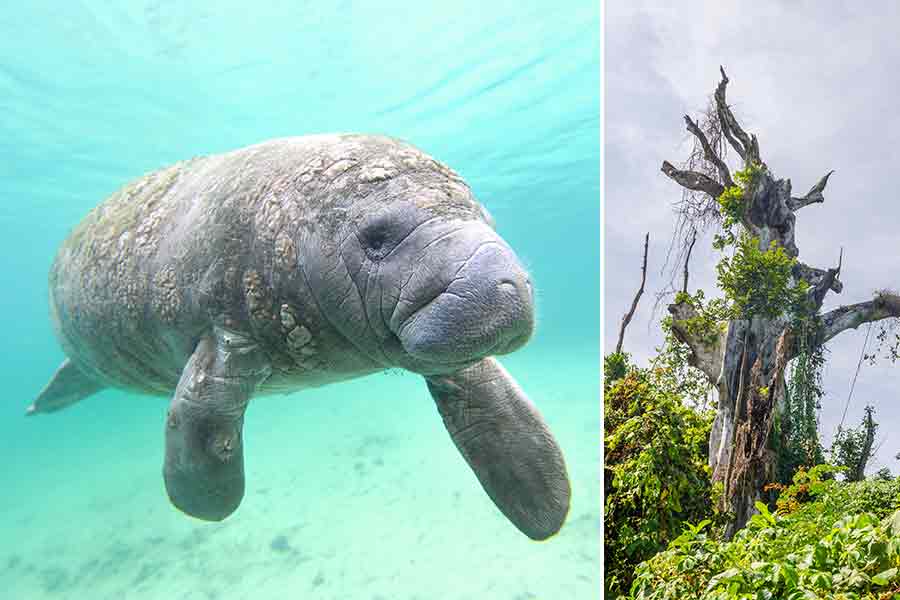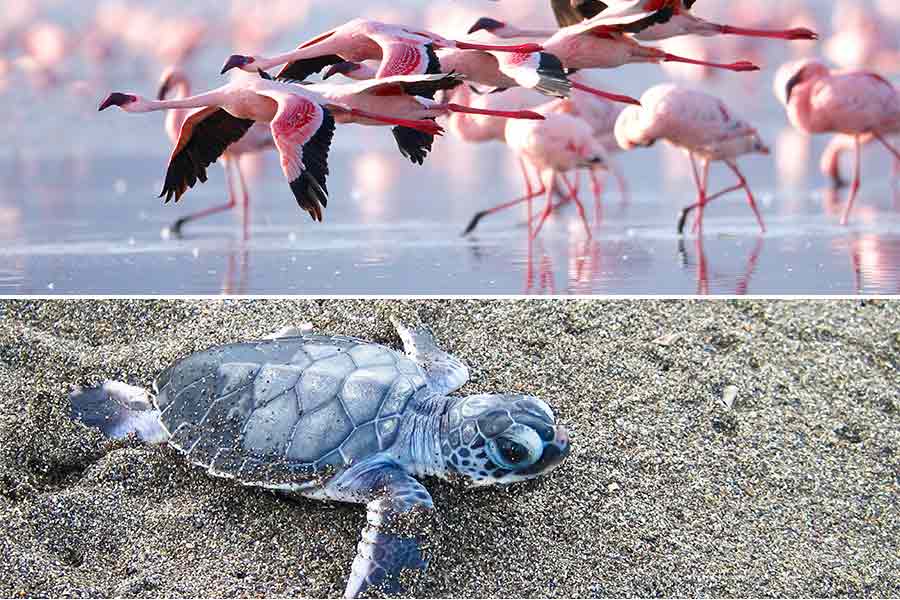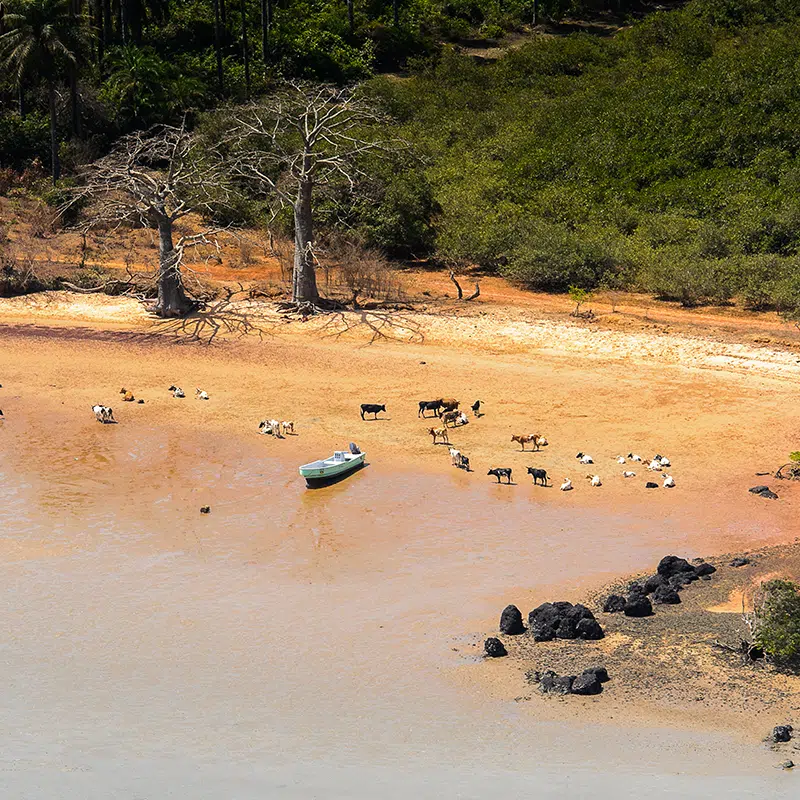An encounter with the exceptional wildlife of the Bissagos Islands
88 islands off the coast of Guinea-Bissau, governed by mangroves, palm forests, savannahs and vast sandbanks: welcome to the Bissagos Islands, an archipelago named after the animistic ethnic group that live there (the Bissago). The rarest animals in the world harmoniously coexist in this untamed land, which is one of the most biodiverse places in the North Atlantic Ocean.
The entire archipelago is still ruled by Bissago tradition, which worships and respects the wild species that live there. This centuries-old way of life advocates the wise and natural management of resources to ensure both the tribe’s survival and the preservation of the islands’ natural wealth. When it comes to environmental awareness, the archipelago can proudly proclaim that it is several centuries ahead of the rest of the world. This way of life is what enables the Bissagos Islands (a UNESCO Biosphere Reserve since 1996) to offer visitors a unique natural experience discovering a fascinating collection of land and sea creatures.
In the water: the largest aquarium on Earth
The ecosystem and location of the Bissagos Islands are key contributors to the archipelago’s tremendous wealth of wildlife. Mostly covered with mangroves, its coasts provide fish with food and shelter. Located close to the mouth of the Geba River, the archipelago is a nerve centre where over 170 species of fish now converge: coastal species including a rich array of snappers coexist alongside many small rockfish and bottom feeders. In this underwater crowd, it is not uncommon to come across some notable heavyweights, such as barracudas or Atlantic tarpons (nicknamed the “silver king”, a predator that follows the tides). It is a wonderland for divers, who explore the depths alongside some impressive sea mammals.

Boasting dolphins, bluespotted ribbontail rays, guitarfish and a wealth of sharks including grey reefs, tigers and hammerheads, the waters surrounding the archipelago are a theatre with an all-star cast. The lagoons covered with masses of sea grass house the headline act: manatees, now sadly endangered due to overfishing. The warm, shallow waters of the Bissagos Islands are home to one of the largest “sea cow” colonies in the world, giving visitors a rare opportunity to view these precious mammals.

All is sacred, be it on land or in the sky
The on-land show offered by the Bissagos Islands is just as impressive! The undisputed island stars are sea turtles, who have claimed the archipelago as their heartland and earned it recognition as one of the most significant green sea turtle breeding sites in the Atlantic. Between July and October, the turtles flock here in droves to lay their eggs in nests dug directly into the wide deserted beaches. Green sea turtles share this habitat with four other species of sea turtle: leatherbacks, loggerhead musks, hawksbills and olive ridleys.
All make the most of the many uninhabited islands, such as Poilão,to live undisturbed. In the south of the archipelago, Poilão island has a very special status inherited from Bissago tradition. Here, blood must not be shed and any visit is subject to the permission of the local tribes who “own” the island, and a ritual. Escaping both human presence and light pollution, it is a peaceful haven for sea turtles, who come here to reproduce by the hundred.

A paradise for land and sea creatures, this land of plenty also attracts the world’s most magnificent migrant birds, including flamingos and pelicans, for whom the Bissagos Islands represent the second most important habitat.
The facts leave little room for doubt: this archipelago is clearly where Noah’s Ark ran aground! Here, diversity rules supreme because harmony and symbiosis have been the archipelago’s watchwords since time immemorial. From the traditional ceremonies to the very topical way in which its national parks are managed, the approach to conservation adopted by the Bissagos Islands is both reasoned and beneficial to biodiversity. Humans occupy a natural position there, mindful of the fragile balance that exists between their needs and their obligations.

PONANT takes you there
Explore the Bissagos islands.



